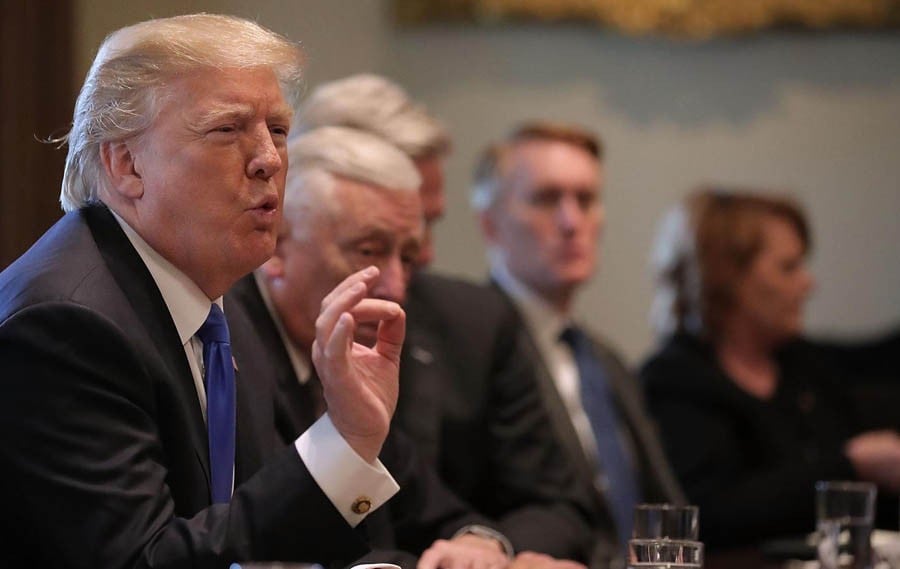
Trump’s frustration emanates more from the fact that Pakistan is seen as the extension of Chinese influence in South Asia and South West Asia than undermining the US’s dubious efforts to stabilise Afghanistan

There is absolutely nothing new in the Donald Trump’s venom: "The United States has foolishly given Pakistan more than 33 billion dollars in aid over the last 15 years, and they have given us nothing but lies and deceit." Barack Obama and Bush before him had been weary of either Pakistan’s alleged complicity in protecting Afghan Taliban or its failure to combat them. In fact, the use of drone missions to hunt al Qaeda and Taliban operatives in Pakistan’s tribal areas first started under the Bush administration back in June 2004 when a US operated unmanned drone killed Taliban commander Nek Mohammad. Similarly, in July 2008, Bush sanctioned secret orders to carry out ground operations inside Pakistan without Islamabad’s permission. Obama’s presidency was informed by the continuity of the Bush tenure’s legacies.
Is Pakistan under fire because of its alleged ‘double-dealing’ of running with the hare and hunting with hounds?
The view from Washington, ranging from Bush to Obama to Trump now, has been that Pakistan has, since 2004, been selectively cooperating with the US in the latter’s bid to defeat global terrorism that was, post 9/11, spearheaded by al Qaeda. More precisely, it is widely believed in Washington that Pakistan is keen to hunt down anti-Pakistan Taliban while sparing, sheltering and supporting their Afghan counterparts who have been fighting the coalition forces across Afghan side of the border.
In an interview with the Guardian, back in February 2015, even Pervez Musharraf confessed to have supported Taliban after 2001 because, as he said, Karzai had "helped India stab Pakistan in the back." This was despite the fact that Pakistan under the very military ruler had decided its lot with the US in the so-called war on terror. Apparently, Pakistan is rightly accused of double-dealing. If so, this would suggest that duplicity is wrong in essence and whosoever indulges in perfidy is worth censure and punishment.
When one looks back in history, since Pakistan’s inception, the US has always supported military dictators in the country ranging from Ayub Khan to Ziaul Haq to Pervez Musharraf though, in principle, the US has been championing the cause of democracy throughout the world. Isn’t this an unforgivable duplicity? Surely so, but who will punish the mighty punisher? In a nutshell, in the preceding paragraph I have tried to establish that it is not the duplicity as such that qualifies Pakistan to be punished!
What may explain Trump’s outburst then?
The ultimate goal of a great power "is to be the hegemon -- that is, the only great power in the system," argues John Mearsheimer in his book The tragedy of great power politics. Mearsheimer also believes that great powers, such as the US, always strive to prevent other competitors to rise in any region around the globe. In the Asian context, especially in the South Asia, Washington is keen to thwart the rise of Beijing. Great powers allow regional powers to contain the rise of a potential hegemon in a given region. If regional powers are a no match to tackle the threat, a distant major power, itself a hegemon in its own right, steps in to contain the emergence of a potential hegemon.
In the South Asian and South West Asian context, the US has employed a two-pronged strategy to prevent the rise of China as a regional hegemon. On the one hand, India is the chief vehicle for efforts to contain China. On the other hand, Washington has itself stationed its forces in neighbouring Afghanistan to tackle the emerging threat. The rise of China as an economic power is definitely causing a disquiet in the US.
In all probability, in the policymaking circles of Pakistan, Trump’s uproar is seen as a concerted attempt to demonstrate US’ displeasure with Pakistan’s role as being the mainstay of China’s projection of economic might in the form of China Pakistan Economic Corridor (CPEC), a flagship project of five similar undertakings under Border and Road Initiative (BRI) spanning 65 countries the world over. Seemingly, the US is perturbed by the stretching of Chinese economic muscles "because economic might is the foundation of military might," as to quote Mearsheimer. Seen this way, one can only anticipate the intensification of conflict in and around the Pak-Afghan region. Elsewhere wherever BRI passes through one may see trouble.
Trump’s frustration emanates more from the fact that Pakistan is seen as the extension of Chinese influence in South Asia and South West Asia than undermining the US’s dubious efforts to stabilise Afghanistan. Will the US pressure pay off? Most probably not! Pakistan has found out a better alternative in China, at least this is what policymakers here seem to believe!